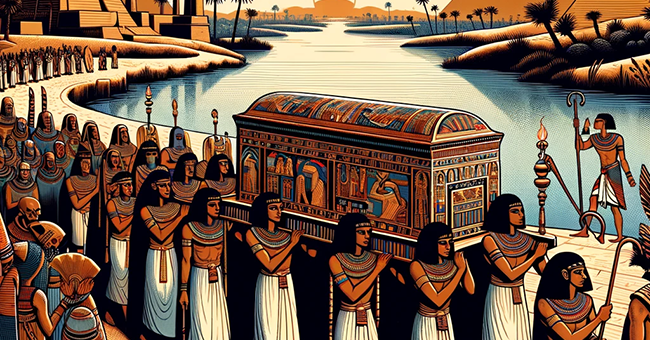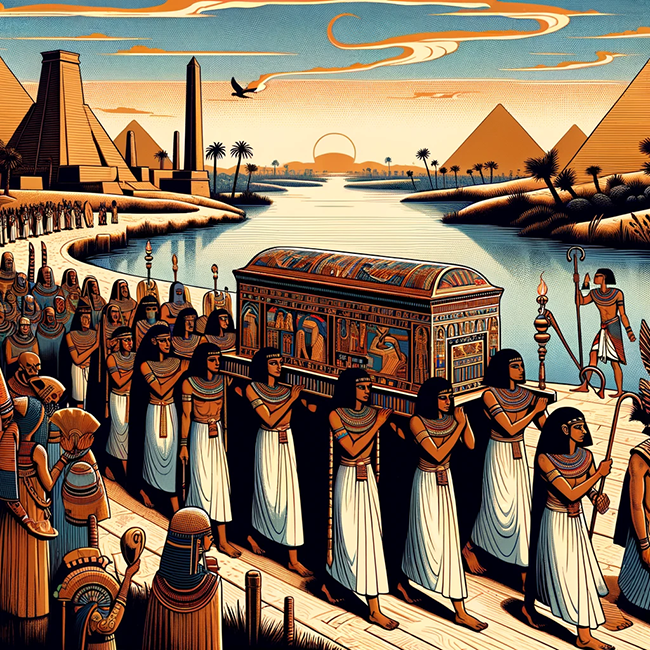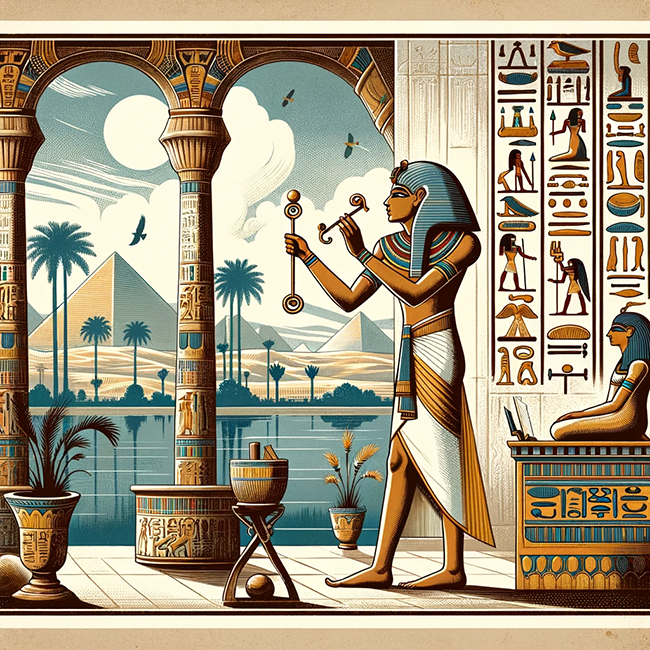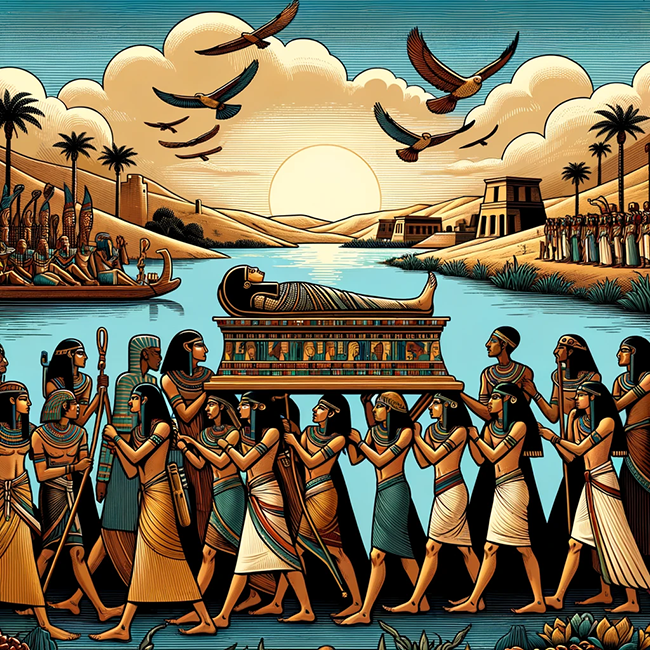
Hekau, in ancient Egyptian belief, refers to sacred words of power or spells that were central to their magical practices. These “words of power” were not just mere words or incantations but were believed to embody the very essence of the divine power they invoked.
The concept of hekau is deeply rooted in the ancient Egyptian understanding of the universe, where words held the creative force that could influence the material and spiritual realms.

Origins and Usage
Cosmic Significance: The Egyptians believed that the universe was created through the spoken word, a belief mirrored in the myth where the god Ptah created the world through his heart and tongue, signifying thought and speech. This cosmogony underpins the significance of hekau, as the Egyptians saw these magical words as a means to harness cosmic power.
Integration in Daily Life: Hekau was used in various aspects of Egyptian life, from the most grandiose temple ceremonies to the most personal spells for protection, healing, and love. They were an integral part of the rituals to protect the pharaoh, ensure the flooding of the Nile, or guide the deceased through the underworld.

In Rituals and Texts
Funerary Texts: Perhaps the most famous collection of hekau can be found in the Pyramid Texts, the Coffin Texts, and the Book of the Dead. These texts were essentially collections of spells intended to protect the deceased, guide them through the Duat (the Egyptian underworld), and ensure their rebirth and well-being in the afterlife.
Protection and Healing: Hekau were also used for protection against evil spirits and harmful forces, as well as to cure illnesses. Amulets inscribed with hekau were commonly worn for protection.

The Power of the Spoken Word
Pronunciation: The correct pronunciation of hekau was crucial. The Egyptians believed that for a spell to be effective, it had to be spoken or chanted correctly, with the right intonation and emphasis, as the power of the magic was contained within the sound of the words themselves.
Written Magic: While spoken hekau was powerful, written spells were also significant. Inscriptions on temples, tombs, statues, stelae, and papyri carried magical power. The act of writing was itself considered a magical act, with scribes playing a crucial role in the creation of magical texts.
Philosophical Underpinnings
Ma’at and Isfet: Hekau were deeply connected to the Egyptian concepts of Ma’at (order, truth, harmony) and Isfet (chaos, falsehood, injustice). Magic, through the use of hekau, was a tool to uphold Ma’at and dispel Isfet, ensuring balance in both the physical world and the spiritual realm.

